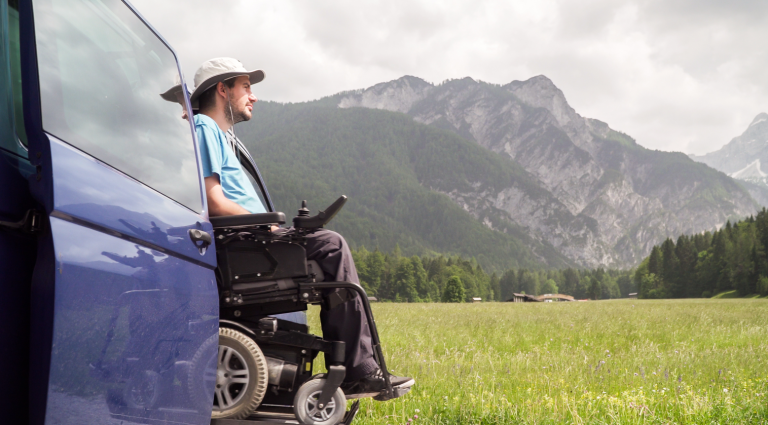Receiving an Amyotrophic Lateral Sclerosis (ALS) diagnosis can feel overwhelming for individuals and their families. This progressive neurodegenerative disease gradually impacts muscle control, making everyday tasks increasingly challenging.
With the right resources, individuals living with ALS can maintain a significant degree of autonomy and a high quality of life. In this article, we’ll explore five essential resources that empower ALS patients and their caregivers, fostering resilience through every stage of the journey.
Smart Home Technology and Home Modifications
Creating an accessible and adaptable living environment is fundamental to fostering independence for individuals with ALS. Smart home technology and thoughtful home modifications can significantly enhance a patient’s ability to control their surroundings and manage daily tasks with greater ease. Imagine being able to adjust lighting, control thermostats, or even open doors with a simple voice command or a slight movement.
Devices like smart speakers, smart plugs, and integrated home automation systems empower individuals to manage their environment without physical exertion. Beyond technology, strategic home modifications such as widening doorways, installing ramps, and lowering counters can eliminate physical barriers. These changes are not just about convenience; they are about restoring control and enabling individuals to comfortably and safely navigate their own homes.
Adaptive Equipment for Mobility and Self-Care
Maintaining mobility and the ability to perform self-care tasks independently are crucial for preserving dignity and personal freedom. Adaptive equipment plays a pivotal role in achieving this for ALS patients. This category encompasses a wide array of tools designed to compensate for muscle weakness and limited movement. Examples include power wheelchairs that offer freedom of movement, specialized eating utensils that make mealtime easier, and dressing aids that simplify getting ready each day.
Even seemingly small adjustments, like grab bars in the bathroom or elevated toilet seats, can make a significant difference in fostering self-sufficiency. These resources are not just about physical assistance; they are about empowering individuals to continue managing their personal routines, thereby enhancing their overall independence and reducing reliance on others for basic needs.
Indispensable Professional Caregiving
As ALS progresses, the need for support often increases, making dedicated caregiving services an invaluable resource. These services provide professional assistance with a wide range of daily activities, from personal care and medication management to meal preparation and light housekeeping. Beyond the practical help, professional caregivers offer companionship and emotional support, recognizing the unique challenges faced by individuals with ALS and their families.
Opting for professional caregiving services, like those offered by Caregiver Inc., can alleviate significant burdens on family members, allowing them to focus on their relationship with their loved one rather than solely on care tasks. This shared responsibility can prevent caregiver burnout and ensure that the ALS patient receives consistent, high-quality care, ultimately contributing to their comfort and ability to maintain a sense of normalcy in their lives.
Specialized ALS Mobile Applications
In today’s digital age, mobile applications offer a convenient and accessible way to manage health, access information, and stay connected. For individuals with ALS, specialized mobile apps can be transformative in enhancing independence. These applications can assist with medication reminders, appointment scheduling, and even provide exercise routines tailored to their specific needs and abilities.
Many apps also offer communication features, allowing users to quickly and easily express themselves or control smart home devices. There are apps with developed ALS accessibility for iPhone users that integrate seamlessly with the device’s native functions to offer a robust and user-friendly experience. These apps empower patients to take a more active role in managing their health and daily routines, fostering a sense of control in a world that often feels beyond their grasp. From enabling communication to eye tracking, these mobile solutions transform the smartphone into a vital companion for daily living.
Support and Educational Resources
Beyond physical aids and professional services, the emotional and psychological well-being of ALS patients and their families is greatly supported by community resources and ongoing education. Connecting with others who understand the ALS journey through support groups, online forums, or local chapters of ALS associations provides invaluable encouragement, shared experiences, and practical advice. These communities offer a safe space to discuss challenges, celebrate small victories, and find solidarity.
Furthermore, readily available educational resources, including reliable websites, webinars, and informational brochures from reputable organizations, empower families with knowledge about the disease progression, available treatments, and coping strategies. This continuous learning helps individuals and caregivers make informed decisions, adapt to changing circumstances, and approach the future with greater confidence and optimism, ultimately enhancing the patient’s independence and quality of life.
Final Thoughts
While an ALS diagnosis presents significant challenges, it does not diminish the inherent desire for a fulfilling life. By strategically leveraging essential resources such as advanced assistive technology, adaptive equipment, professional caregiving services, specialized mobile applications, and robust community support, individuals with ALS can maintain a remarkable degree of autonomy.
These resources are not just tools; they are pathways to enhanced independence, dignity, and a continued connection to the world. Embracing these opportunities allows individuals with ALS to live more fully, empowering them to navigate their journey with resilience and a renewed sense of purpose.


